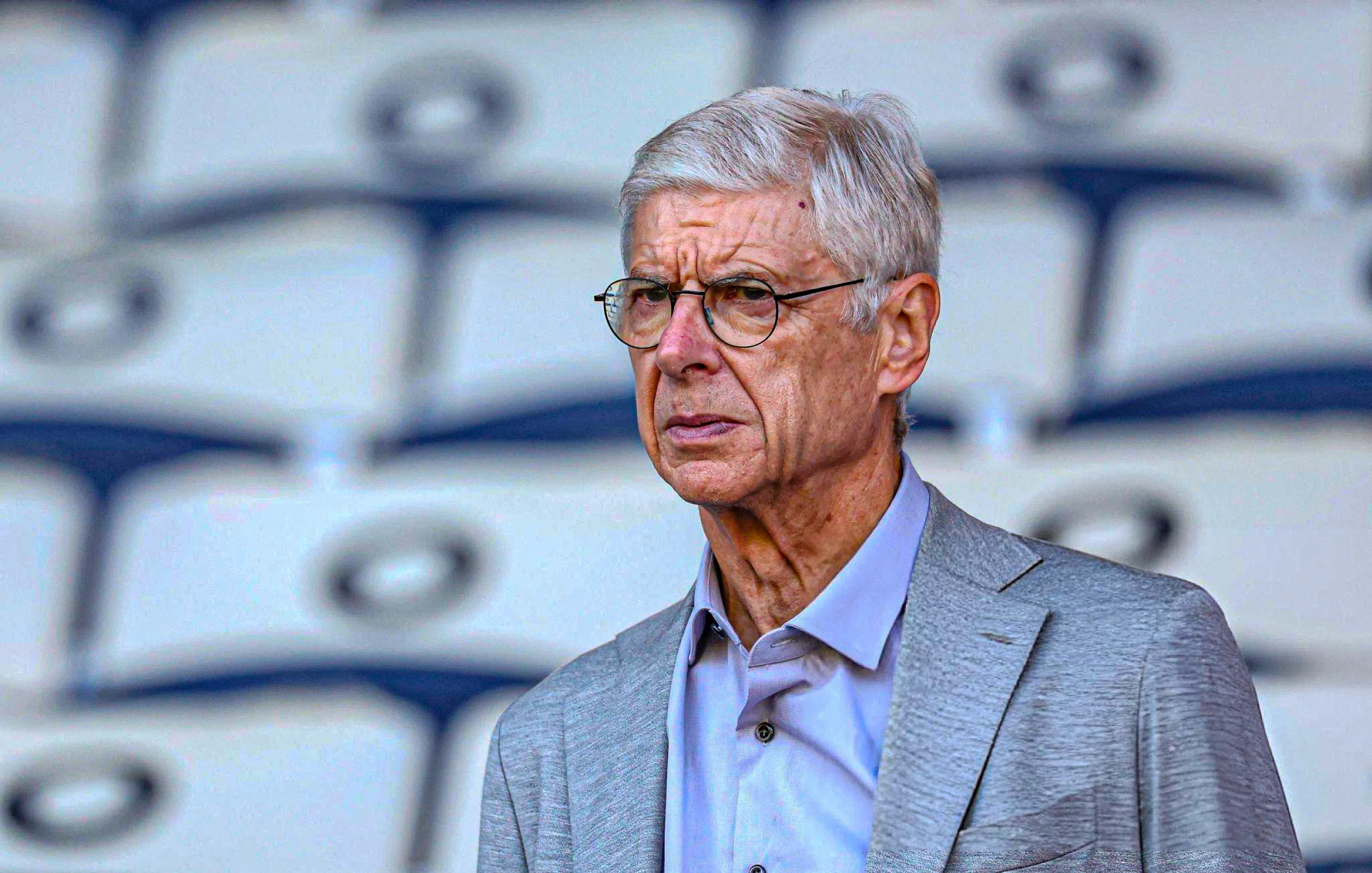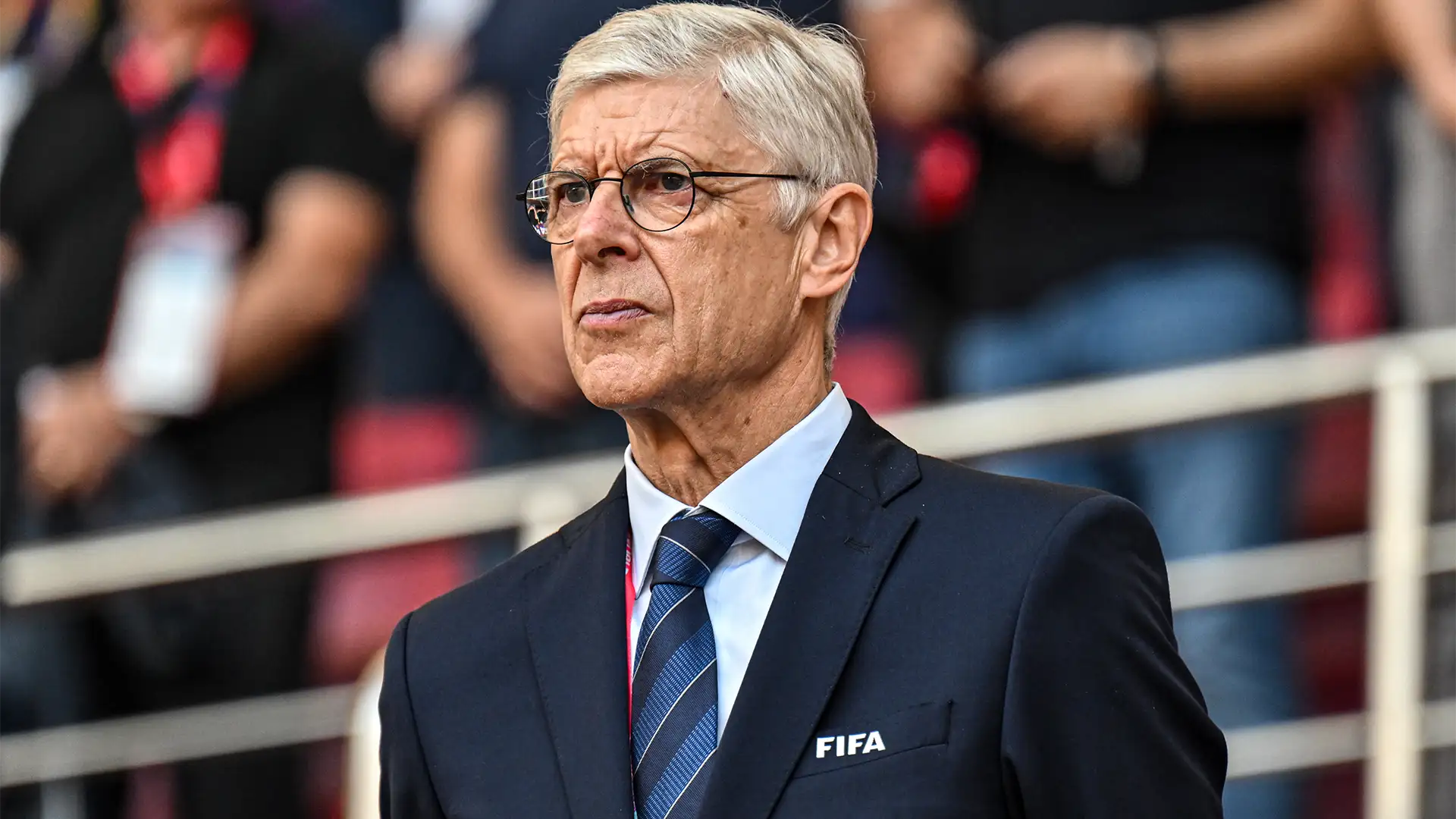Arsène Wenger Biography: Age, Son, Net Worth, Wife, Trophies, Current Job, Height, Kids, Stats, Invincible

Biography
Arsène Wenger, born Arsène Charles Ernest Wenger on October 22, 1949, in Strasbourg, France, is a highly respected figure in football, renowned for his transformative impact at Arsenal Football Club.
Before moving to England, Wenger made his mark in French football, managing Monaco, leading the team to a league title and a French Cup victory. His innovative coaching style gained recognition, leading to his appointment as Arsenal’s manager in 1996.
During his time at Arsenal, Wenger revolutionized the club’s approach to training, nutrition, and youth development. He introduced the “Wengerball” style, emphasizing technical skill and fluid passing. Under his leadership, Arsenal secured three Premier League titles, seven FA Cups, and famously went unbeaten during the 2003-2004 season, earning the team the nickname “The Invincibles.”
Wenger’s impact went beyond the pitch. He played a key role in developing the Emirates Stadium and helped reshape Arsenal’s financial strategy. His 22-year tenure, the longest in the club’s history, ended in 2018.
After Arsenal, Wenger took on roles with FIFA, focusing on global football development, and briefly managed Japan’s national team. His legacy is one of innovation, success, and a lasting influence on modern football management.
French former association football manager
Arsène Wenger |
|
|---|---|
 |
|
| Wiki Facts & About Data | |
| Real Name: | Arsène Charles Ernest Wenger |
| Stage Name: | Arsène Wenger |
| Born: | 22 October 1949 (age 74 years old) |
| Place of Birth: | Strasbourg, France |
| Nationality: | French |
| Education: | University of Strasbourg |
| Height: | 1.91 m |
| Parents: | Alphonse Wenger, Louise Wenger |
| Siblings: | Guy Wenger |
| Spouse: | Annie Brosterhous (m. 2010–2015)d |
| Girlfriend • Partner: | N/A |
| Children: | Léa Wenger |
| Occupation: | Football Manager • Former Footballer |
| Net Worth: | $40 million to $48 million (USD) |
Early Life & Education
Arsène Wenger was born on October 22, 1949, in Strasbourg, France, to Alphonse Wenger and Louise Wenger. He was raised in the village of Duttlenheim alongside his brother, Guy Wenger. The family was deeply rooted in the community, with Alphonse managing the local football team, which played a significant role in Wenger‘s early exposure to the sport.
Wenger‘s upbringing included a strong Catholic faith, which he has maintained throughout his life. He has occasionally spoken about his religious beliefs, reflecting how his faith influences his approach to life and football, emphasizing values like discipline, community, and perseverance.
His education at the University of Strasbourg led him to study economics and politics, though he initially considered medicine. This academic foundation, combined with his linguistic abilities, contributed to his later reputation as one of the more intellectual figures in football management.
Wenger‘s early career saw him playing for local teams before transitioning into management. His analytical mind and strategic thinking were evident early on, setting the stage for his groundbreaking work in football, particularly during his time at Arsenal, where he managed the team and reshaped the club’s philosophy and infrastructure.
Career
Arsène Wenger began his football journey modestly, playing for lower-division French clubs like FC Duttlenheim, Mutzig, and Mulhouse. After retiring as a player, he quickly transitioned into coaching, starting at Nancy as a youth coach before eventually taking over as head coach.
Wenger‘s breakthrough came with AS Monaco, where he won the French Ligue 1 title in 1988 and the French Cup in 1991. He gained recognition for his focus on fitness, nutrition, and tactical innovation. A brief stint with Nagoya Grampus Eight in Japan further broadened his coaching horizons, allowing him to influence the J.League’s development and refine his approach.
In 1996, Wenger embarked on his longest and most celebrated tenure at Arsenal. He transformed the club by implementing his distinctive “Wengerball” philosophy, centered around possession, technical excellence, and fluid movement. His teams were known for their attacking style and high-pressing game. He also prioritized youth development, nurturing talents like Cesc Fàbregas, Ashley Cole, Jack Wilshere, and Bukayo Saka.
During his time at Arsenal, Wenger led the club to three Premier League titles, including the iconic “Invincibles” season of 2003-04, where the team went unbeaten. He also secured seven FA Cups, becoming the competition’s most successful manager. Additionally, Wenger played a crucial role in constructing the Emirates Stadium, ensuring the club’s long-term financial sustainability.
Wenger‘s influence extended beyond Arsenal, revolutionizing English football’s approach to training, diet, and scouting. After departing the club in 2018, he took on roles with FIFA, focusing on global football development. He also briefly managed Japan’s national team and has since served as a consultant, sharing his expertise with clubs and organizations seeking to modernize their approach to the game.
Social Media
- Instagram: Arsène Wenger (@arsene.wenger)
- IMDb: Arsène Wenger
Personal Life
Arsène Wenger was married to Annie Brosterhous, a former French Olympic basketball player. The couple married in 2010 after a long-term relationship that began in the mid-1990s, but reports in 2015 suggested that they had separated, indicating their marriage had ended by then. They have one daughter, Lea Wenger, born in 1997, who has maintained a private life like her father.
Wenger’s personal life has sparked occasional speculation, especially around the time of his separation, though details about his dating history remain limited. Standing at approximately 6 feet 3 inches, Wenger’s height was notable throughout his playing and managerial careers.
Net Worth
Arsène Wenger, the former Arsenal manager, has accumulated significant wealth over his illustrious career. According to sources like CelebrityNetWorth and other reports up to 2021, his net worth is estimated to be around $40 million to $48 million. This wealth was largely amassed through his salaries during his tenure at Arsenal, where his earnings progressively increased from £500,000 per season in 1996 to reportedly around £8 million annually by the end of his contract in 2018.
Wenger‘s financial acumen was evident not just in his managerial salary but also in how he managed transfers and investments for Arsenal. For instance, he turned a profit on player transfers, like selling Nicolas Anelka for £22.3 million after initially buying him for £500k. He used part of those funds to acquire Thierry Henry and invest in Arsenal’s infrastructure, like the London Colney Training Centre.
Post-Arsenal, Wenger‘s engagement with FIFA and other consultancy roles might have further padded his earnings, though specific details on these incomes are less publicized. His lifestyle, often described as modest for someone of his stature in football, suggests a focus on financial prudence rather than ostentatious spending.
Achievements
Arsène Wenger‘s career is marked by numerous achievements, awards, and recognitions, both for his contributions to football and his significant impact at Arsenal Football Club. Here’s a list:
Achievements at Arsenal:
- Premier League Titles:
- 1997-98
- 2001-02
- 2003-04 (The Invincibles, went the entire league season unbeaten)
- FA Cup Wins:
- 1998, 2002, 2003, 2005, 2014, 2015, 2017
- Community Shield:
- 1998, 1999, 2002, 2004, 2014, 2015, 2017
- European Achievements:
- Reached the UEFA Champions League final in 2006.
Awards and Recognitions
- Managerial Awards:
- Premier League Manager of the Month on multiple occasions.
- LMA Manager of the Year: 1998, 2002, 2004, 2015
- Individual Awards:
- Received the Freedom of the City of London in 2015, a prestigious honor recognizing his contribution to football.
- FIFA Order of Merit in 2018, an award presented to those who have shown exceptional merit in the football world.
- Hall of Fame:
- Inducted into the English Football Hall of Fame in 2006.
- Part of the Premier League Hall of Fame in 2021.
- Post-Retirement:
- Named as one of FIFA’s 100 greatest living footballers in 2004, although this was more for his impact as a manager rather than a player.
- Appointed as FIFA’s Chief of Global Football Development in 2019.
NOTICE!! NOTICE!! NOTICE!!
DISCLAIMER!! : Every Biography and Contents Published On TheCityCeleb are For Knowledge Reason, Don’t Hesitate to Reach Out to Us/Contact for Any Correction || Suggestion || Copyright!!
CORRECT@thecityceleb.com
Call: (+234) 815-413-5400 || Email: info@thecityceleb.com
WhatsApp: (+234) 703-964-6947






